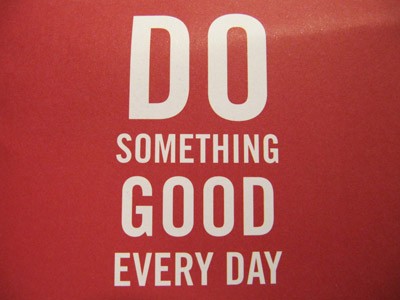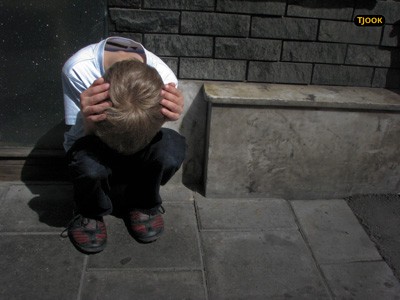Fear of losing things
A series of talks on the many aspects of of our lives that we may have fear towards—death, identity, the future, health, the economy, loss, separation, and more; touching also on the wisdom of fear and the different antidotes to ease our fears.
- People who are accustomed to having less don’t fear losing as much
- If we broaden our view we see that we have it so much better than so many others
- If we give up the attachment to something then not having it is not a problem
Fear 11: Fear of losing things (download)
Okay so, yesterday we were talking about overcoming fear regarding the economy. And, I’ve lived in a number of third-world countries and what we get afraid of losing, billions of people have never had to start with. And I think because they’ve never had it to start with, they aren’t afraid when it isn’t there, because they’ve never had it be there, okay? In other words, for example, when I was in Nepal I was doing some work for one monk and his aunt was quite ill, I can’t remember exactly with what, but she had no health insurance and she had no Medicare and no Medicaid and none of this stuff. Of course health care wasn’t as expensive as it is here but she never had any of that and so she wasn’t worried about not having it because nobody around her had it either. And everybody just dealt with the situation of being ill when it came up. And so, I took her to a clinic and she was okay. And there was another nun where I was staying who had TB and I had to take her to the hospital too. In the hospitals in Nepal they don’t have the nurses, at least at that time, that take care of you, and you don’t have a call button, and you don’t have catheters and things like that, and you’re in one big long room that’s not so clean. And the hospital also doesn’t make you food, your family has to cook the food and bring it in for you, and the family has to deliver a lot of the medicine. So, again, these people were concerned about being sick, but they weren’t afraid of losing their health insurance or their benefits. They were actually just happy to be at the doctor and to be able to get some health care whatsoever. Even if, of course, the health care available to them wasn’t anything like what we have here.
So, what I’m getting at is the point that I brought up yesterday, that is, we compare ourselves to the people around us, or we compare ourselves to what’s familiar to us, and then we get afraid or we get jealous based on that. But if we broaden the range of what we’re looking at, we’ll see in so many ways that we’re actually more fortunate to start out with and even if we lose something or have to give something up, we’re still more fortunate than millions and millions of people on this planet. And so in that way it changes the mind from fear to gratitude and appreciation. And it changes the mind to make it one of seeing that we have to develop our own internal strength to deal with these situations. And that that is going to lead to much more healing than falling apart and feeling sorry for ourselves and blaming others for whatever the situation is. Okay?
The importance of being generous
And then, another thing, that I think can be very helpful in terms of with the economy, is — [Picks up the kitty and talks with/for it]: “I’m not worried about it, I eat the same cat food every day, I sleep in the same basket every day, and I don’t change the sheets once a week.” He’s still content.
But one thing that, you know, the fear of not having, this is the fear of poverty, you know, when we offer the mandala, we offer without any sense of loss. What that means, what that is: without fear that if we give it away we won’t have it, without fear of losing something. Because that fear of loss is much more painful than actually not having something if we’re not attached to it. So if we give up the attachment to something, not having it is not a problem, okay? If we’re attached to it then of course giving it up is a problem. And even having it is a problem, because even when we have it we’re afraid of losing it. So the mandala offering is done to help us learn not to be afraid of giving things up and instead to have a sense of joy and delight in giving.
And so this hooks in with the whole fact that generosity is the cause of wealth. Now when the economy goes down, we think stinginess is the cause of wealth. So all of the CEO’s have been stingy and miserly and self-centered so they have all the money. So now: “I am going to be stingy, miserly and self-centered and not share whatever I have with others, because then I won’t have it.” You see what we’re getting to? We’re mimicking the same attitude that we’re criticizing in the people who were being greedy and self-centered that got the system into this mess, which is an attitude of just looking out for ourselves. And the thing of, you know, “If I give it away I won’t have it,” and “The most important thing is me and that I have what I want.” And as long as we have that mind, it doesn’t matter whether we’re poor or whether we’re wealthy. In our mind we’re poor and there’s a sense of poverty and a sense of lack. And that’s why very often when you go to third world countries you will see people being generous, even though they have hardly anything, and you come here where people have a lot and they find a great deal of difficulty being generous. And so we talk about generosity is the cause of wealth, but when it comes down to it we think stinginess is the cause of wealth and we hang on to what we have. And, although we hang on to it, we feel more and more poor. But when we give it away and with a mind that takes delight in generosity then the mind feels quite rich, and the mind feels delighted, the mind feels happy because we feel happy in giving, and just the process of giving is delightful. And then also, if you happen to be thinking of karma in a more self-centered way, you know that giving is the cause of wealth. If you happen to be thinking of karma in a less self-centered way then giving can be the cause of enlightenment for you. Okay? But in any sense, to really expand the mind and see that the mind that clings is a mind that’s fearful and has a sense of poverty. Whereas a mind that gives is much, much freer, and more liberated, and feels much more happiness.
Venerable Thubten Chodron
Venerable Chodron emphasizes the practical application of Buddha’s teachings in our daily lives and is especially skilled at explaining them in ways easily understood and practiced by Westerners. She is well known for her warm, humorous, and lucid teachings. She was ordained as a Buddhist nun in 1977 by Kyabje Ling Rinpoche in Dharamsala, India, and in 1986 she received bhikshuni (full) ordination in Taiwan. Read her full bio.


